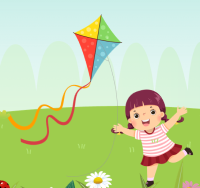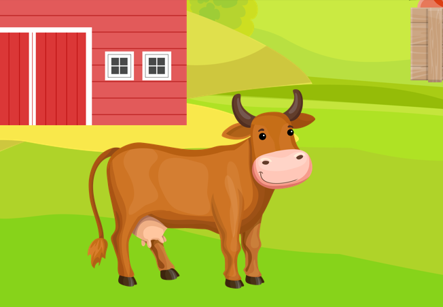
Hãy nhập câu hỏi của bạn vào đây, nếu là tài khoản VIP, bạn sẽ được ưu tiên trả lời.


Nowadays, large cities are becoming more and more inhabited. The majority of the population prefer living in a big town mainly because of the great advantages it has compared to living in the countryside. However, what are the benefits of this situation, and what are the drawbacks? In this essay, I will explore the pros and cons of living in a large city and try to draw some conclusions.
Let’s start looking at the advantages. One of the main positives of a big town is the large amount of shops available in every corner of the city. What I mean by this is that whenever you live, there are some useful stores supermarkets, banks, tobacconists and clothing stores where you can easily buy everything you need without going to the city center. Secondly, living in a big town is a big challenge for evening parties. In London, for example, there are so many things to do in the evenings going to the cinema, to the pub or to the park during the summer period.
Turning to the other side of the argument, traffic could be one of the major disadvantages of living in a big city. Many people take the car everyday and it has also been proved that the majority of the families have at least two cars. This means that you have to deal with rush-hour traffic on your way to work and on your way back. In addition, in a big town there is consequently a lot of smog and this can really affect people’s health.
To sum up, living in a big city has great advantages but also some significant negatives.You have to weigh up to the pros of enjoying evenings’ nights outside and the availability of many shops and the cons of cope with smog and traffic issues. Personally, I believe that the benefits of enjoying the city-life and the comfort of having shops at every corner, eventually overweigh the negatives.

My mother is an ordinary woman she is my superhero. In every step of my, she supported and encouraged me. Whether day or night she was always there for me no matter what the condition is. Furthermore, her every work, persistence, devotion, dedication, conduct is an inspiration for me. In this essay on my mother, I am going to talk about my mother and why she is so special to me.
dịch:
Mẹ tôi là một người phụ nữ bình thường, bà là siêu anh hùng của tôi. Trong mỗi bước đi của tôi, cô ấy đều ủng hộ và khuyến khích tôi. Dù ngày hay đêm, cô ấy luôn ở bên tôi dù tình trạng thế nào. Hơn nữa, mọi công việc, sự kiên trì, tận tụy, cống hiến, hạnh kiểm của cô ấy là nguồn cảm hứng cho tôi. Trong bài luận về mẹ tôi, tôi sẽ nói về mẹ tôi và tại sao bà lại đặc biệt với tôi như vậy.

1. flying - kite
2. picture - Yes
3. see - ox
4. text - Yes
1. flying/ kite
2. square/ yes
3. see/ ox
4. quiz/ yes

hi: chào
hello:chào
what: cái gì
is:là
you:bạn
name: tên
who: là ai
on: bên trên
in: bên trong
~ đổi k nhé ~
các từ sau có ngĩa là gì
hi, chòa
hello, chào
what, là gì
is, là
you, bạn
name , tên
,you , bạn
,who, là ai
on, trên
in , trong

Make present simple questions use Do/ Does
1. (you / cake?)
-> Do you cake?
2. (she / live in London?)
-> Does she live in London?
3. (they / hate studying?)
-> Do they hate studying?
4. (you / drink tea every morning?)
-> Do you drink tea every morning?
5. (you/ brush your teeth at night?)
-> Do you brush your teeth at night?
6. (he / play tennis on Saturdays?)
-> Does he play tennis on Saturdays?
7. (you / go shopping at the weekend?)
-> Do you go shopping at the weekend?
8. (you / drink milk?)
-> Do you drink milk?
9. (she / work in hospital?)
-> Does she work in hospital?
10. (they / study English?)
-> Do they study English?
11. (you / meet your friends on Fridays?)
-> Do you meet your friends on Fridays?
12. (you / read some books?)
-> Do you read some books?
13. (Wang / come from China?)
-> Does Wang come from China?
14. (they / pizza?)
-> Do they pizza?
15. (we / go to sleep at 9 p.m.?)
-> Do we go to sleep at 9 p.m?
16. (it / snow here in winter?)
-> Does it snow here in winter?
17. (Lucy / study Math?)
-> Does Lucy study Math?
Make present simple questions use Do/ Does
1. (you / cake?)
---> Do you cake ?
2. (she / live in London?)
---> Does she live in London ?
3. (they / hate studying?)
---> Do they hate stdying ?
4. (you / drink tea every morning?)
---> Do you drink tea every morning ?
5. (you/ brush your teeth at night?)
---> Do you brush your teeth at night ?
6. (he / play tennis on Saturdays?)
---> Does he play tennis on Saturdays ?
7. (you / go shopping at the weekend?)
---> Do you go shopping at the weekend ?
8. (you / drink milk?)
---> Do you drink milk ?
9. (she / work in hospital?)
---> Does she work in hospital ?
10. (they / study English?)
---> Do they study English ?
11. (you / meet your friends on Fridays?)
---> Do you meet your friends on Friday ?
12. (you / read some books?)
---> Do you read some books ?
13. (Wang / come from China?)
---> Does Wang come from China ?
14. (they / pizza?)
---> Do they pizza ?
15. (we / go to sleep at 9 p.m.?)
---> Does we go to sleep at 9 p.m ?
16. (it / snow here in winter?)
---> Does it snow here in winter ?
17. (Lucy / study Math?)
---> Does Lucy study Math ?
#H o l a ( :
#L i n q q








My favourite hobby is reading; therefore I have collected various types of books. I started reading fairy tales when I was four years old. At the first time, I was interesting in colorful pictures with meaningful contents. When reading a story with a happy ending, I felt very happy. Reading books brings me a lot of benefit. Firstly, it makes me relaxed and calmed. After a hard-working day, I can relieve stress by reading a funny story. I also learn new vocabulary items. Then I can further improve my English. Moreover, it can give me an unlimited imagination, so I can write books in the future. I can learn the different cultures and customs of other countries in the world too. I read books at least one hour every day. I wish I could read different kinds of books because it might be very challenging.
Dịch:
Sở thích của tôi là đọc sách, vì vậy tôi đã và đang sưu tầm nhiều loại loại sách. Vào lúc 4 tuổi, tôi bắt đầu đọc truyện cổ tích. Ngay từ lần đầu đọc sách, tôi bị hấp dẫn bởi những bức tranh sặc sỡ với nội dụng ý nghĩa. Khi đọc một câu truyện có kết thúc có hậu, tôi cảm thấy rất vui. Đọc sách mang lại cho tôi rất nhiều lợi ích. Đầu tiên nó giúp tôi cảm thấy thư giãn và bình tĩnh. Sau một ngày làm việc vất vả, tôi có thể giảm căng thẳng bằng việc đọc một câu truyện cười. Tôi cũng có thể học thêm nhiều loại từ vựng mới, từ đó cải thiện Tiếng Anh. Hơn nữa, đọc sách có thể mang lại cho tôi một trí tưởng tượng không giới hạn, vì vậy tôi có thể viết sách trong tương lại. Tôi có thể biết thêm nhiều về các phong tục tập quán khác nhau của các nước trên thế giới. Hàng ngày, tôi đọc sách tại nhà ít nhất một giờ. Tôi ước tôi có thể đọc được thêm nhiều loại sách khác nhau bởi vì đó là khá thách thức với tôi
ma tieng anh lop 5